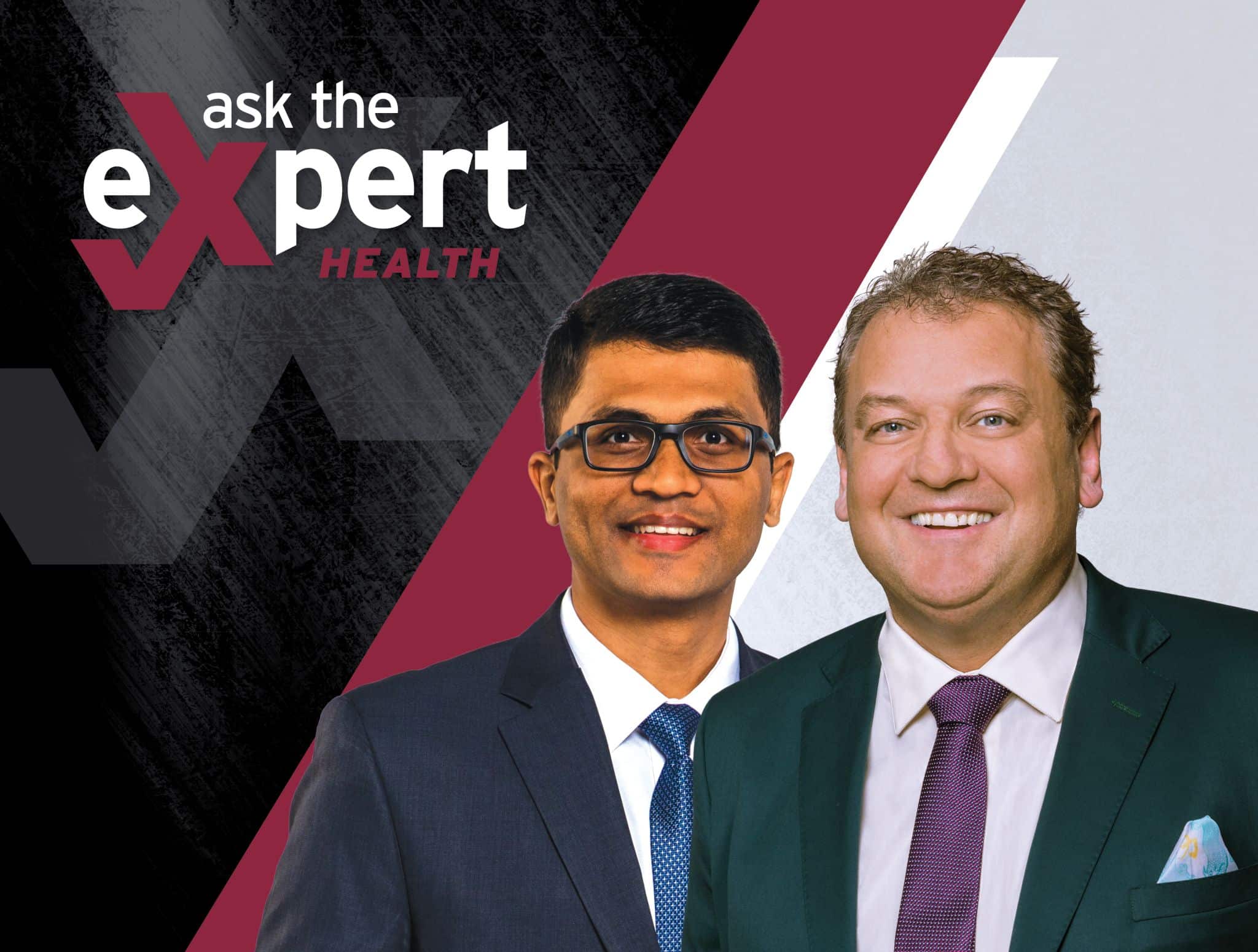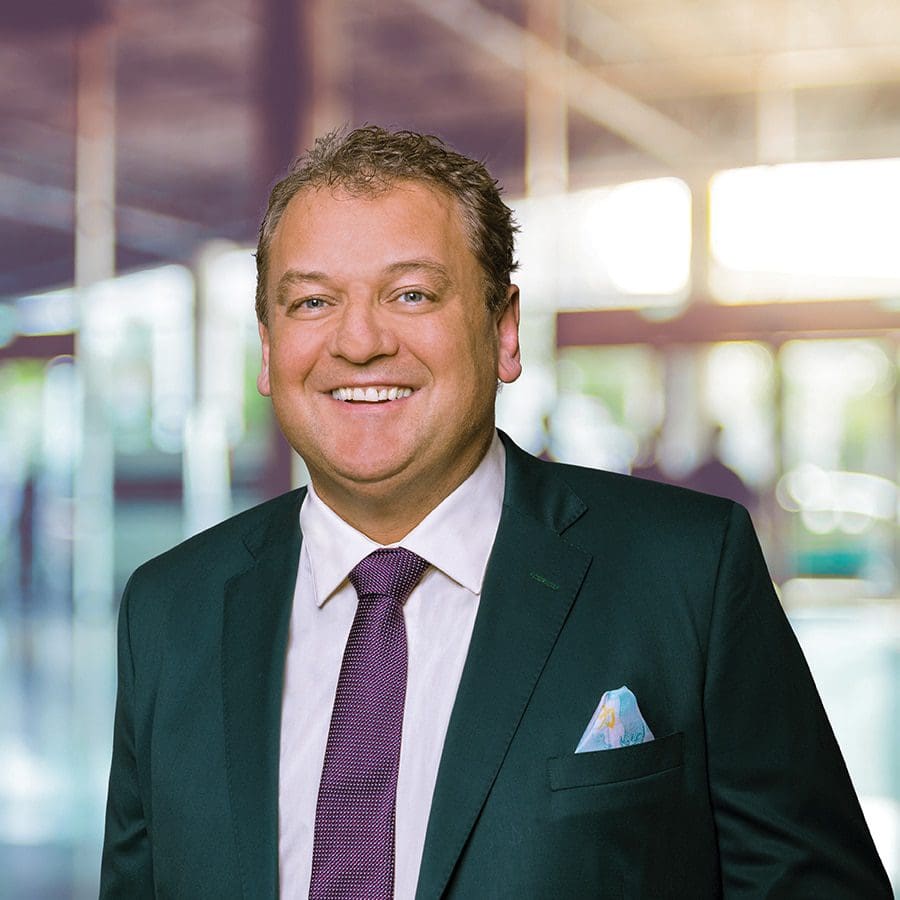
By Akers Editorial
Ask The Expert: Cardiology

(L) Dr. Saurabh Patel, FACC, FSCAI / Cardiologist / Village Heart & Vein Center
(R) Dr. Georg Couturier / Owner and Cardiologist / Village Heart & Vein Center

Q: Can I lead a normal life following a heart attack?
A: Let me start by saying that each minute after a heart attack, more heart tissue is damaged or dies. Therefore, it is very important to identify the warning signs of somebody having a heart attack. Those signs include chest pressure, tightness, discomfort, and heaviness. You may also experience nausea, sweating, jaw pain, and left arm pain. Atypical symptoms may include an upset stomach or significant acid reflux. A heart attack can happen suddenly, and in some cases, it wakes people up at night. Anyone experiencing these symptoms should be immediately evaluated in the hospital or a nearby urgent care.
There are two forms of heart attacks—major heart attack and minor heart attack. A major heart attack needs urgent treatment with angioplasty and stent placement or open-heart surgery with bypass graft. Minor heart attacks need urgent evaluation and a medical treatment plan with blood thinners, stenting, or emergency bypass.
Now, can someone live a normal life after a heart attack? Immediately following a heart attack, patients should be closely evaluated by cardiologists for one to two weeks to follow the course of recovery. Based on evaluation, a patient should be referred to cardiac rehab, where they will be closely monitored while completing an exercise program and other activities. Cardiac rehabilitation has proven to be significantly important in improving normal lifestyle and enhancing a patient’s exercise capacity after a major heart attack. Those who recover from the heart attack and complete their rehabilitation program enjoy a longer life expectancy and quality of life. If someone does not finish their rehabilitation program because of symptoms of congestive heart failure, their quality of life is compromised.
If there’s damage to the heart muscle from the heart attack, patients can still live a normal life with appropriate medical therapy combined with a change in their diet and lifestyle. There also needs to be strict monitoring of their water and salt intake.
If you are experiencing heart attack symptoms, you cannot wait to get evaluated. If you wait longer, the heart has already been damaged, and at that point, chances of recovery are limited. If there is significant damage to the heart muscle, chances of death increase due to rapid heartbeat, or ventricular fibrillation. After undergoing appropriate medical therapy, if the heart symptoms do not improve, defibrillator implantation can prevent sudden cardiac death and improve life expectancy.
Of course, everybody should live a healthy lifestyle and try to avoid having a heart attack in the first place. Undergoing periodic screenings and doctor evaluations allow us to intervene before a heart attack occurs.

Q: Can I lead a normal life following a heart attack?
A: Yes. People can live a normal life after a heart attack. If you exercise, eat healthy, lose unnecessary weight, and take your prescribed medication, then more likely than not, you will be able to live a complete, normal life. If you have a stroke, you’ll end up with permanent damage. However, if you have a heart attack, you can make a remarkable recovery. That’s because the self-healing ability of your brain is much more limited than the self-healing ability of your heart. Exercising after a heart attack is crucially important. Your heart is a muscle, and like any other muscle in your body, you must exercise to keep it strong. That’s why insurance companies encourage patients to participate in a rehabilitation program following a heart attack. Patients live longer and have fewer medical costs down the road. Patients who participate in rehabilitation programs realize the importance of staying in shape, and exercise eventually becomes second nature.
At Village Heart and Vein Center, our heart attack patients do go on to live normal lives. Dr. Patel and I truly complement one another. I’m further along in my career and am therefore more experienced. However, Dr. Patel brings new, fresh ideas to our practice. Dr. Patel is an interventional cardiologist who has undergone specialized training in heart catheterization procedures. I am a general cardiologist. I can learn from Dr. Patel, and he can learn from me. Our practice has all the specialties of cardiac coverage because we have two general cardiologists, two electrophysiologists, and two interventional cardiologists.
Of course, everybody should live a healthy lifestyle and try to avoid having a heart attack in the first place. Undergoing periodic screenings and doctor evaluations allow us to intervene before a heart attack occurs.
Village Heart & Vein Center is a full-service cardiology practice that provides its patients with the very highest standards of medical and compassionate care!







